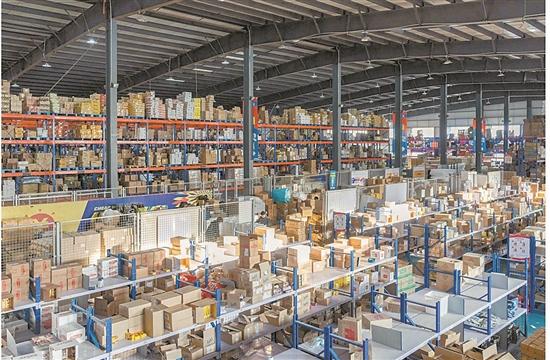As a new form and model of international trade, cross-border e-commerce is reshaping global trade patterns at an unprecedented speed and scale. In the first half of this year, China's cross-border e-commerce imports and exports reached 1.22 trillion yuan, marking a 10.5% year-on-year growth, significantly outpacing the growth of overall foreign trade during the same period. Cross-border e-commerce has become one of China's three major trade methods, alongside general trade and processing trade.
Guangdong, a major foreign trade province, has seen particularly rapid growth in cross-border e-commerce. In 2023, Guangdong's cross-border e-commerce imports and exports reached 843.3 billion yuan, 74.6 times higher than in 2015, maintaining the largest scale in the country for several consecutive years. In the first half of this year, Guangdong's cross-border e-commerce trade totaled 427.34 billion yuan, accounting for more than one-third of the national total.

According to the Ministry of Commerce of China, about nine million small packages were exchanged daily between China and the rest of the world in the first half of this year. The Department of Commerce of Guangdong Province reported that Guangdong accounts for more than half of the country's international and Hong Kong, Macao, and Taiwan express deliveries, processing over 120,000 international parcels every hour.
Industry experts attribute the growth of cross-border e-commerce to the rapid development of China's digital economy. In 2023, China's online retail sales reached 15.4 trillion yuan, making it the world's largest online retail market for the 11th consecutive year.
The robust growth of cross-border e-commerce is also driven by the solid foundation of China's manufacturing industry and its supply chain. Panyu, Guangzhou, is a key hub for cross-border e-commerce, home to over 1,000 e-commerce companies. Three of China's four largest cross-border e-commerce platforms are based in this area, attracted by its thriving garment industry.
Panyu boasts more than 34,000 garment companies, including over 7,000 garment manufacturers. After years of development, Panyu has established a relatively complete industrial chain, from fiber processing to research and design, and garment manufacturing, making it one of the country's key textile and garment hubs and a major supplier for many cross-border e-commerce platforms.
According to Liu Hang, Director of Cross-Border Business at Temu, Guangdong's strong manufacturing capabilities, well-developed supply chain system, and advanced logistics infrastructure have been key drivers of the rapid growth in cross-border e-commerce.
















